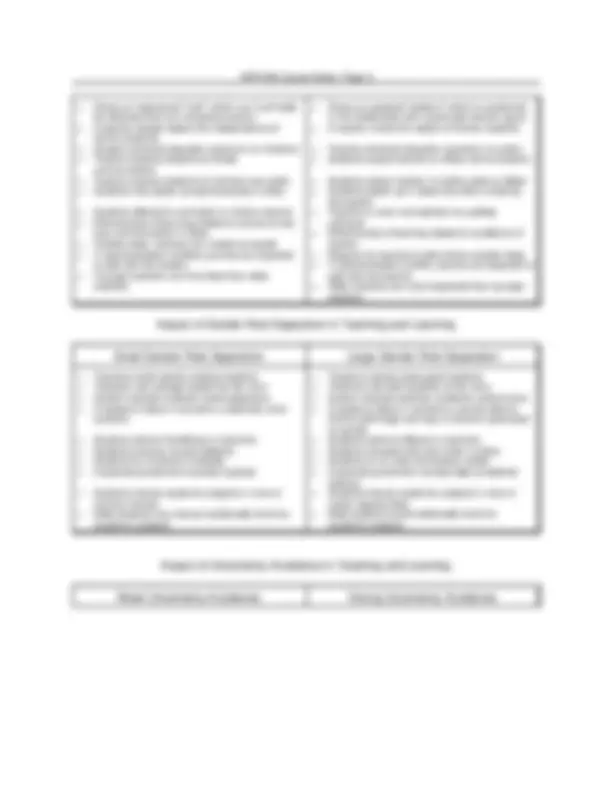




Study with the several resources on Docsity

Earn points by helping other students or get them with a premium plan


Prepare for your exams
Study with the several resources on Docsity

Earn points to download
Earn points by helping other students or get them with a premium plan
Community
Ask the community for help and clear up your study doubts
Discover the best universities in your country according to Docsity users
Free resources
Download our free guides on studying techniques, anxiety management strategies, and thesis advice from Docsity tutors
Insights into the impact of cultural values on teaching and learning styles in different societies. It discusses the effects of individualism, power distance, gender role separation, and uncertainty avoidance on various aspects of education, including student-teacher interactions, classroom dynamics, and academic performance. Based on research by hofstede and is useful for educators, students, and researchers interested in cross-cultural education.
Typology: Study notes
1 / 4

This page cannot be seen from the preview
Don't miss anything!



Cultural Values in the Learning Setting
Positive association in society with whatever is rooted in tradition The young should learn; adults cannot accept the student role Students expect to learn how to do Individual students will only speak up in class when called upon personally by the teacher Individuals will only speak up in small groups Large classes split socially into smaller, cohesive subgroups based on particularized criteria (e.g., ethnic affiliation) Formal harmony in learning situations should be maintained at all times Neither the teacher nor any student should ever be made to lose face Education is a way of gaining prestige in one's social environment and of joining a higher status group Diploma certificates are important and displayed on walls Acquiring certificates, even through illegal means (cheating, corruption) is more important than acquiring competence Teachers are expected to give preferential treatment to some students (e.g., based on ethnic
affiliation or on recommendation by an influential person)
Positive association in society with whatever is "new" One is never too old to learn; "permanent education" Students expect to learn how to learn Individual students will speak up in class in response to general invitation by the teacher
Subgroupings in class vary from one situation to the next based on universal criteria (e.g., the task "at hand") Confrontation in learning situations can be salutary; conflicts can be brought into the open Face-consciousness is weak
Education is a way of improving one's economic worth and self-respect based on ability and competence Diploma certificates have little symbolic value
Acquiring competence is more important than acquiring certificates
Teachers are expected to be strictly impartial
Students feel comfortable in unstructured learning situations; vague objectives, broad assignments, no timetables Teachers are allowed to say "I don't know" A good teacher used plain language Students are rewarded for innovative approaches to problem solving Teachers are expected to suppress emotions (and so are students) Teachers interpret intellectual disagreement as a stimulating exercise Teachers seek parents' ideas
Students feel comfortable in structured learning situations; precise objectives, detailed assignments, strict timetables Teachers are expected to have all the answers A good teacher used academic language Students are rewarded for accuracy in problem solving Teachers are allowed to behave emotionally (and so are students) Teachers interpret intellectual disagreement as personal disloyalty Teachers consider themselves experts who cannot learn anything from lay parents--and parents agree